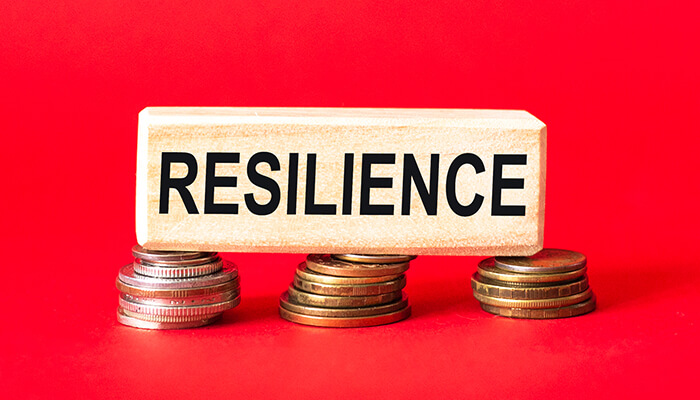Entrepreneurs may face difficulties in running their businesses due to various problems. They should know how to overcome challenges effectively. Those who want to accomplish their goals in their business should enhance their skills. Furthermore, entrepreneurs should focus on improving their problem-solving abilities in various ways. Resilience is a skill that lets entrepreneurs recover from difficulties quickly.
Another thing is that it makes feasible ways to adapt well during a crisis to accomplish goals with high success rates.
What Are The Ways To Turn Resilience Into Successful Business Strategies?
1. Planning for the worst situations
It is difficult for entrepreneurs to predict the future but they can plan for the worst scenarios in business. They can evaluate the situations and implement the best strategies to respond quickly. This, in turn, gives ways to manage unwanted problems in the future markets In other words, they can foster a much more resilient business that helps obtain optimal results.
2. Improving inventory flexibility and visibility
Inventory is necessary for a business to ensure smooth operations in markets. On the other hand, many companies mismanage their inventory which results in various problems. Hence, a company should have consistent and real-time visibility to improve the supply chain management process. It provides ways to adjust and deploy the inventory depending on the market conditions.
3. Leveraging integrated systems and technologies
Entrepreneurs should leverage their technologies and integrated systems within their businesses to build gaps. Apart from this, they can create business resilience with collaboration and synergy. Not only that, teams and departments can stay connected with them which helps react efficiently to potential problems.
4. Establishing flexible manufacturing processes
A business or company should strive to keep a high degree of flexibility within the workplace to efficiently adapt and reply directly to any changes that can arise. It is critical for producers to make certain that they possess the essential operational flexibility to effectively address various demands as they vary over time, ultimately improving their usual productivity and competitiveness within the marketplace.
In order to evolve to changing market conditions and emerging technology, it is crucial for them to recognize evolving their enterprise version even as additionally demonstrating a strong ability to remain flexible and resilient in the face of challenges.
5. Robust forecasting and planning processes
When a significant disturbance occurs within a corporation or business, such as unexpected market fluctuations or internal operational challenges, it has the potential to significantly influence the delicate balance of supply and demand dynamics. It is crucial to note that various companies proactively anticipate such disruptions and proactively establish strategies and safeguards to mitigate adverse effects, ensuring operational resilience and continuity during uncertain times.
Despite having stable and consistent networks, companies can still encounter significant business continuity challenges if they fail to proactively address potential disruptions that may arise unexpectedly. It is crucial for businesses to have contingency plans in place to mitigate the impact of such unforeseen events on their operations.
6. Driving continuous innovation and improvement
During periods of disruptive change, many companies demonstrate their ability to thrive by embracing the challenges as learning opportunities for their employees. These disruptions serve as catalysts for continual growth, driving companies to innovate and evolve their strategies. Not only do disruptions foster a culture of innovation, but they also encourage businesses to explore novel approaches to meeting customer demands and expectations in evolving market landscapes. By navigating through disruptions with resilience and creativity, companies can transform challenges into avenues for achieving sustained success and competitive advantage.
Staying resilient and adaptable in the face of business continuity challenges is essential for companies to effectively navigate turbulent times and position themselves for long-term success. By fostering a culture of innovation and continuously seeking new opportunities for growth, businesses can not only thrive in competitive landscapes but also ensure sustainable and scalable development. Prioritizing resilience and innovation allows companies to not only overcome obstacles but also seize strategic advantages that propel them toward enduring success and prosperity.
7. Reducing lead and cycle times
Customers and suppliers have high expectations when it comes to receiving their products promptly. It is crucial for companies to ensure timely deliveries to maintain strong relationships with their stakeholders. Despite best efforts, various unforeseen disruptions can sometimes interfere with the normal delivery process, causing potential delays.
To mitigate these challenges and uphold customer satisfaction and loyalty even in turbulent times, businesses must streamline their operations by minimizing lead and cycle times. By adopting efficient strategies, organizations can navigate disruptions smoothly and sustain fruitful partnerships with their valued customers and suppliers.
8. Following iterative approaches
Staying resilient is essential for a business enterprise because it allows it to conform and thrive in the face of changing instances. This resilience allows the corporation to continually iterate on its strategies, gaining valuable insights into the dynamic surroundings in which it operates. By doing so, they are able to correctly pivot their business version to align with the evolving landscape, ensuring that their techniques continue to be relevant and effective. Furthermore, a resilient agency is highly geared up to rally its team of workers and mobilize resources successfully when executing its strategic plans, fostering a lifestyle of adaptability and innovation inside the company.
Entrepreneurs should regularly assess their progress levels and be prepared to make adjustments as important to achieve their goals. It is crucial for them to establish a solid game plan at the outset, incorporating valuable insights gained from their experiences into their strategies for business expansion. By continuously refining their approaches based on feedback and results, entrepreneurs can effectively navigate challenges and drive sustainable growth in their ventures.




